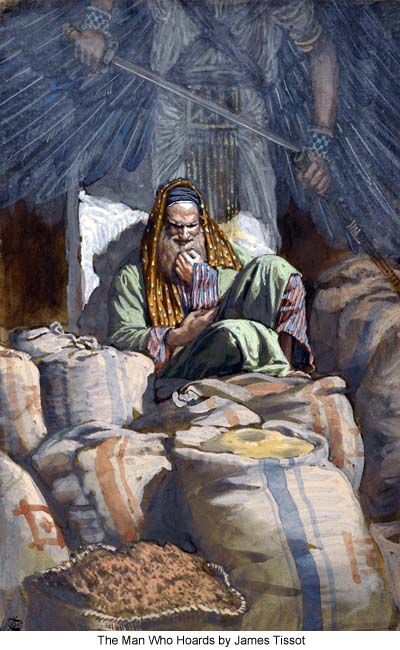Growing up, most of the children’s stories and fairy tales we read seemed to play out in much the same fashion: some poor, hapless figure undertakes a quest, gains wisdom, becomes rich, marries a princess, and lives happily ever after.
Well, the parable in today’s gospel belays that theme; actually, turning it on its head. The protagonist is already rich, rooted to his land, but greed gets the better of him as he is overly preoccupied by his wealth. He is not wise, but foolish, because he decides to hoard his grain rather than share. Instead of planning for his future, he focuses on the present by wanting to build bigger barns; a decision that will undoubtedly end up haunting him as he is about to die that very night. So much for “happily ever after!”
This man was foolish because he placed all his faith in the hollowness of material gain, perceiving it to be the epitome of achievement, success, and happiness. He was hypersensitive to his wealth, while remaining oblivious to his own spiritual impoverishment.
Temporal treasures cannot provide the currency of eternal salvation, security or peace. This is a deceptive, flawed perspective on wealth. Earthly riches can never outweigh eternal value.
Because we live in a culture of consumerism, the allure of materialism is great, and no more so than in this period before Christmas. Yet, the parable of the Rich Fool invites us to reconsider life’s priorities, challenging the empty quest for wealth while advocating concern for one’s spiritual well-being. Something we should seriously contemplate as we journey through this Advent Season; for “where your treasure is, there your heart will be also.”






